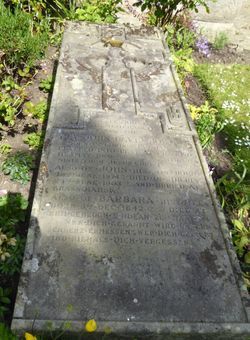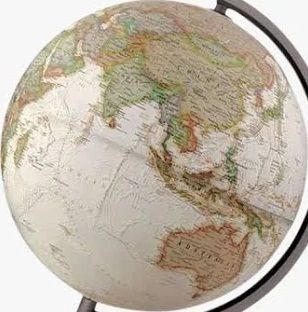Dresden 1891 and now more -
Perhaps even the Real Start of the German Game
Of all of Germany football probably came first to Dresden. But, perhaps because of the destructions of the Second World War and the isolation of being in the East before unification the game's history has proved somewhat hard to trace. Yet what appears to be indisputable is that was brought by what seems to have been a substantial British and North American community that had grown up in the city in the last third of 19th Century, reaching a peak about 1895, with the resultant claim that the formation, mainly it seems to practice athletics, of the Dresden English Football Club (DEFC) in 1873/74 was the first such on the Continent with Brits beginning to practice a game on open ground along the city's Lennestrasse. But to what rules that game was remains unknown with the likelihood, however, they had been proto-rugby or similar, even proto-American football, for the following reason. We know that an Anglican church was completed in 1869 and that the chaplain in the city, John Smith Gilderdale, who died there in 1891, became Honorary President of the football club. We know too that he was a Yorkshire-man, from Huddersfield, born in 1828 and therefore possibly active in sport long before Association football was invented but not before earlier forms of football existed and were practiced in the county..

However, there seems to have been little or no take-up by locals. That would not happen for almost another generation. The Neue Dresdner Fussball-Club was not formed until 1893, Dresden S.C. in 1898. And in the interim the game seems to have remained in-house, that is until 1891 and and perhaps an event with a significance not understood and therefore overlooked by German historians. It was that year, in April, Gildersdale died, aged sixty-three, still in Dresden, still DEFC's President to be replaced by another, relatively newly-appointed cleric. He was John Davis Bowden, had been born in London so also English, but by origin only just, his family actually from Northumberland. However, he was a Presbyterian, he was a minister of the kirk, a fact alone that signifies a good and growing Scots presence in the Saxon capital. Moreover, he had trained in Edinburgh, had married there, to a local girl, who happened also to have been born in England of a Scots father, the family originally from The Borders,, and was fresh, as the playing specifically of Association football had exploded in the Scottish capital, from ministry there. And just to add further to his both his in not Scots then Scottish, sporting credentials he would in 1896 also become, presumably as one of the founders, the first President of Dresden Golf Club, the wee, white ball game of course, and with curling, having in the panoply of World sport Scotland as its precise place of origin, in contrast to Association football, but undeniably being the country where it was first and remains a national passion.
And with Davis Bowden's assumption of the Presidency things seemed to change remarkably rapidly. Within months, and quite possibly not by coincidence, Scottish round ball replaced English oval and in the German context for good. Moreover, inter- replaced also intra-club. Indeed, later in 1891 the first, officially "soccer" game was played in Berlin, DEFC travelling there to defeat the English Football Club Berlin (EFCB) 0-9, the German capital's club having been formed the previous year. Moreover, the fixture was then repeated in 1892, this time a 0-6 win in a morning game, followed in the afternoon by a 0-3 defeat of a team from the German Football- and Cricket-Union, formed by Birmingham-born John Bloch. The eclectic EFCB team would that day include two names that were soon to feature again, this time in the beginnings of the game in Paris, Philip Dennys, later Vice-Captain of the White Rovers in the French capital, and Ernest Cotton, later captain of the same. By contrast the Dresden side had Clark in goal, Bell, the captain, and Hallam, Du Port, Gordon and Hessey, Vines, Thomas (T), Forrester, a second Thomas (H) and Sichel. Thus it had perhaps three Scots or four in the line-up with, as players came and went over the next years, Bell, J.W. Bell, of whom nothing more is yet known except that he was a long-time stalwart of the club and in 1896 the referee for the "Austrian Championship" in Vienna between DFC Prag and Athletic Club Sparta, from the name at least likely to have been one of them.
In fact EDFC was to remain undefeated until 1894, after which there was decline until final dissolution in 1898. However, by that time was a further name of note, this time in Berlin and both on-field, certainly from 1896 with the Anglo-American club and off-field as editor of the Anglo-German founded Sport im Bild (Sport Illustrated). His name was Andrew Pitcairn Knowles. He had been born in Rotterdam in 1871, as had his father, William, in 1845, but his grandfather had been from Skene in Aberdeenshire and his grandmother from Dundee. And, whilst his mother had been Polish/German Jewish he would marry Margaret Gardner; she from Paisley, as was clearly not far off being as Diasporan-Scots as is possible.
Andrew Pitcairn Knowles would return to Britain from Berlin at some point after 1900, his son, Gordon, having been born there that year. He would die in Hastings in Sussex in 1956, followed by Margaret in 1967. James Davis Bowden, in 1891 perhaps effectively the instigator of Association football (and golf) in Eastern Germany at least, the game having been reported as played in the west in Freiburg from 1888 and Karlsruhe from 1889, would on retirement return to Scotland, settling in Cramond by Edinburgh. And there on his death in 1909 at the age of seventy he, followed five years later by his wife was buried in the local kirkyard, as yet un-honoured for his dual, pioneering, Saxon sporting contributions more pertinently by a Germany until now unaware but thus by Scotland too.

